Around four months after relocating to Germany, Romanian-born Ruxandra Popescu and her husband sat down for crisis talks. She had followed him to a small town near Saarbrücken in Saarland, leaving behind her job as a university lecturer and her prospects of becoming a professor, to allow him to take up a job offer during a recruitment drive for IT specialists in the early 2000s.
Unlike her seven-year-old daughter and her husband, she didn’t speak a word of German. And to make matters worse, a condition of visas for IT specialists at the time was that their partners weren’t allowed to work, or even to volunteer.
Mired in depression and isolated in a small town, Ruxandra was on the verge of moving back home, but having borrowed 6,000 Deutsche Mark from the company to buy furniture and set up their new life, the couple first had to pay off their debts.
“My husband said, ‘Well, I can’t go, I can’t go back now. I need to work to earn back this money, but you can go and I’ll follow you’,” she says. “And I went on a walk in the forest, and I was just thinking to myself, would I be able to go back? Do I want to go back and choose to make this fail? Or am I going to make it happen? I came back after one hour and I told him, we are staying. I wanted to make it happen.”
Ruxandra is one of thousands of migrants who move to Germany every year for the sake of their partner.
In a recent study conducted by Expats Monitor, researchers delved into the unique experience of this group of migrants. They found that the vast majority of people who moved to Germany for love were female, well-educated and with a good level of English and experience of living abroad.
Nevertheless, moving for love can present huge challenges for those who decide to make the leap. Beyond struggles to find friends, learn the language and integrate, there’s also the strong desire to forge a path for themselves and make Germany their own.
READ ALSO: Foreigners on love, hook-ups and friendship in Germany
‘I just ended up here’
Sometimes love can strike at unexpected moments, and other times, life can take hugely unexpected turns.
A twist of fate led to Seattle-born Kim meeting the love of her life in Germany. While living in Okinawa, Japan, as a teacher for the US military, she took on a house-sitting gig looking after a Cockatiel in Wiesbaden.
“While I was here, my teenage daughter came out and my cousin came out and they thought it’d be a good idea to put up a dating profile for me,” she says. “I hadn’t been on a first date since 1993 when I met my ex-husband! I’m like, I don’t know what I’m doing. They’re like, don’t worry, we’ll take care of the whole thing.”
Kim agreed to go on a maximum of three dates. “Mostly for their entertainment, not thinking anything would happen, except a good story,” she explains.
On the third date, she met Victor, a fellow American, and knew it was something special. After two and half years of long-distance dating, she quit her job in Okinawa. Then she took a job in Frankfurt, packed up her life in Japan, and moved to a whole new continent in the autumn of 2020.

Though expat partners all have different and unique stories to tell, the vast majority have one thing in common: Germany was never part of the long-term plan.
British-born Christopher Garton was running a successful olive-oil export business in Tortosa, Spain, when he was badly injured by a hit-and-run driver.
A former volunteer worker from Germany who had worked on their farm previously offered to come back to Spain to help out. Her name was Marina.
As Chris recovered, the two would sit outside at sunset and talk and listen to music. “We really hit it off,” he says. “And a romanced blossomed – but it wasn’t to be because Marina had to go back to Germany to start her career.”
Less than a week after she had left, however, Chris got an unexpected phone call. Marina had returned to Tortosa to be with him. The couple lived together in Spain for two years, but it gradually became clear that Marina would need to return to Germany if she wanted to be able to work in her chosen career.
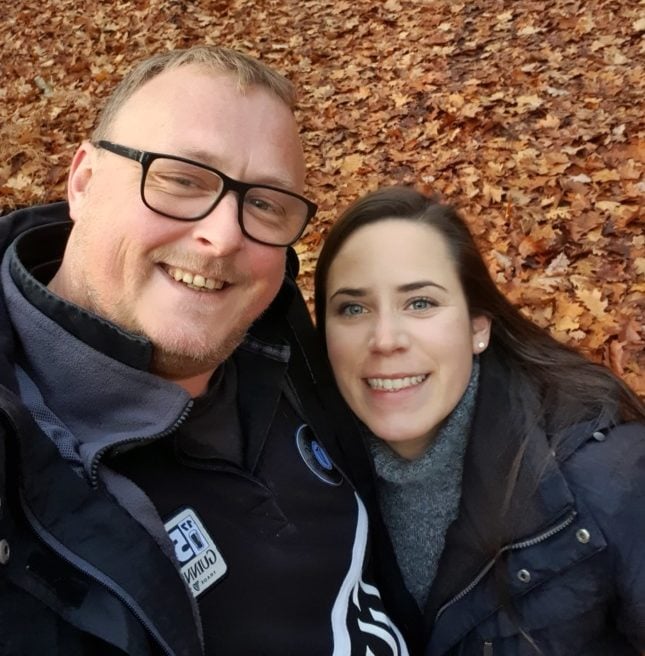
So in 2018, the couple left their Catalonian farm and moved to a tiny village in North Rhine-Westphalia between Aachen and Sittard.
“It was such a huge leap going from living in the sunshine, selling to the food markets and the lifestyle in Spain,” Chris says. “I find myself in Germany working for a company here and using my language skills and customer abilities and everything, and Marina is excelling in her career, but it’s still hard not the miss the sunshine.”
David McGloin from Manchester met his German partner while living his dream life in New Zealand. Vanessa was there on a working holiday and the couple met in a backpackers’ hostel in the Bay of Islands. He struck up a conversation by offering her a bowl of spaghetti bolognese, and these humble beginnings turned into almost a decade together in the southern hemisphere. But Vanessa was desperately homesick.
“I tried everything to keep her there, we bought an old house and renovated that, and I bought her a little puppy – but that still didn’t work,” David says. “So I finally ran out of options and she still wanted to emigrate to Germany or just anywhere closer to home. But I thought we could give Germany a go, for her sake.”
READ ALSO: Pandemic has made marriage and kids popular in Germany again, says expert
Struggling to integrate
Despite the support of their partners and their partners’ families, people who’ve moved to Germany for love often face an uphill struggle to find their feet in the country.
In the Expat Monitor survey, just 43 percent of expat partners said they felt they were integrated into German society, and just 42 percent said they were currently satisfied with their career success in Germany.
David and Vanessa moved from New Zealand to be near her family in the rural region of Bretzfeld in Baden-Württemberg, where English-speaking immigrants are extremely rare.
“I really struggle to integrate here, to have fun and talk and laugh,” he says. He feels alienated by the lack of openness of the local community, who rarely return his friendly greetings when he’s out walking his dog.

Others also said it was difficult to make friends in their area.
“I have very few friends here,” Chris admits. “It’s not through the Germans being cold or anything like that, but it’s so hard to socialise because it’s such a different social structure.”
Described as a “social butterfly” by his partner Marina, the British entrepreneur was used to being the person that everybody knows both in Spain and the UK, but despite living in Germany for more than three years, it’s different here, he says.
Though there are one or two international couples from Chris’ integration course that they have struck up friendships with, there are no pubs or bars in their small town on the Dutch border. Nowhere, in other words, for a friendly Brit to strike up a conversation with some of the other locals.
READ ALSO: Ehegattensplitting: How did Germany’s marriage tax law become so controversial?
Getting to grips with the notoriously difficult German language was also a struggle for all of the partners.
Chris said he had been held back by the lack of face-to-face contact with teachers or tandem partners during the pandemic, while David – who describes himself as “not academic” – said he’d been met with a mocking response on the occasions he’d tried to speak German while out and about.
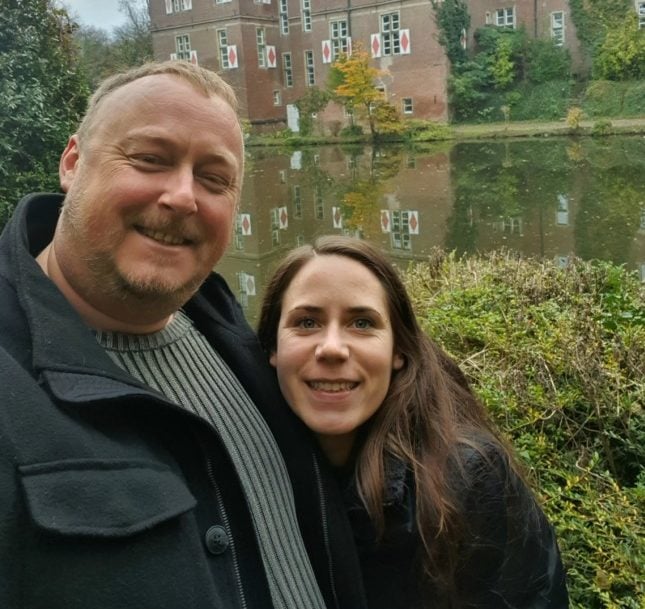
For Ruxandra, the problem was arguably worse. Back in 2001, when she moved to Saarland from Romania, there were no language-learning apps or online courses, and she found herself in a tiny town with no book shops or libraries. Unable to work and meet new people, her only option, she says, was to quite literally learn German “from the streets”.
“I read everything I saw,” she says. “I read every sign, everything around that little place. I have a very analytical mind because I’m an engineer, and I just put the words in order like books on a shelf. I put the words in a sentence like they should be, so I never spoke badly, but vocabulary-wise, I had to learn everything myself.”
Particularly for the people who have moved to be with a German partner, there’s a strong sense that they’ve swapped had to pack up their own life to be part of somebody else’s.
Seeing a chance
But even those who have moved to Germany in difficult circumstances, battling tough regulations or an ongoing pandemic, can see the opportunities. And many are slowly but surely building their own life in the country.
Through the most difficult early years of her more than two decades in Germany, Ruxandra says she could see a chance for herself to create something better than anything that Romania could offer.
Eventually, after the couple had moved to Hesse, a male partner of one of the migrant IT specialists who was also affected by the ban on work approached the government and demanded change.
“He went up to Berlin and said: Do you want us all to be alcoholics? You have to allow us to work – we’re all educated people,” she says. After a successful campaign, the rules were changed in 2003, paving the way for people like Ruxandra to finally find employment.
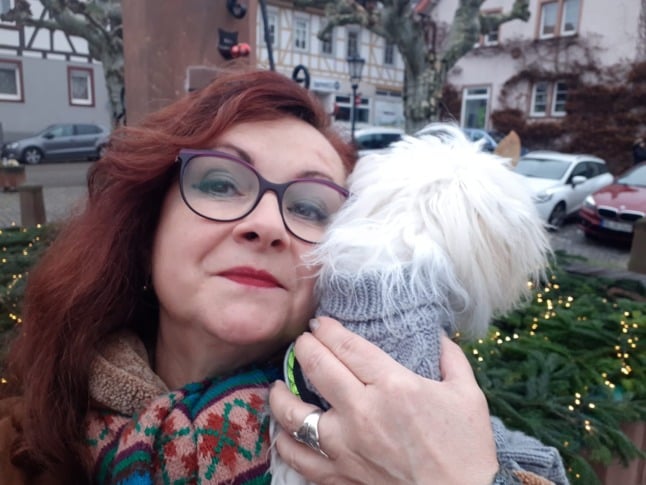
The second she was able to, she took up a job as a private day-care worker, and then at a Gymnasium, or grammar school. The day their permanent residency permits came through, she bought a newspaper and looked for a house to buy, because she hated the idea of paying rent.
Sooner or later, she saw an opportunity to help other migrants who were struggling like she did. She took her hard-won language skills and set up an online German language school.
Her specialism, she says, is helping people who need to pass exams in order to study or stay in the country. In 2020, she helped several British people achieve the B1 certificate they needed to apply for citizenship before the Brexit cut-off date.
READ ALSO: Ehegattensplitting: How did Germany’s marriage tax law become so controversial?
“It’s something that I was born to do,” Ruxandra says. “It took long years and long hours of work to be able to teach a language that I never learnt in school, but I learn every day, even now, with my students.”
For teacher Kim in Frankfurt, who moved from Japan to be with her partner, the game-changer was making her own set of friends through expat groups like InterNations, book clubs and social media communities.

“It was one of my New Year’s resolutions, actually, after the great lockdown of last winter, to make my own circle of friends,” she says. “Victor’s like, Why can’t you just be friends with my friends? And I say, then I’m totally dependent on you. So I’ve made an active choice and since January I’ve been going out on the weekends, just trying to round out my life.”
Chris in North Rhine-Westphalia, who left his farm in Spain, also sees the challenges as an opportunity and is determined to make it work.
“10 years is not a long time,” he says. “15 years is not a long time, 20 years is not a long time in the grand scheme of things. And you can do so much in that amount of time, and experience so much, and it’s only something that will improve your life.”
What the future holds
So, what’s next for this group of couples who are making their lives in Germany, and will they choose to stay?
Kim and Victor are planning to spend half their year in sunnier climates – ideally near a beach – but say they will likely spend summers in Germany for the rest of their lives.
Ruxandra is still running her successful teaching business, her daughter works in Brussels for Sustainable Europe, and her husband has taken up a sailing hobby. They still live in the house in Hesse that they bought all those years ago and are thrilled they chose to stay.
David is still struggling with the alien culture in Germany, but spends many hours out in the mountains on his bike to keep himself sane. He and Vanessa are expecting their first child in the middle of February, and he wonders if that might bring him closer to the country.

“They tell me that changes your perspective,” he says.
Chris and Marina are still busy doing up their house and making space to start a family.
“We don’t know what the future is going to bring or what opportunities are going to be offered to us,” he says. “It’s just a case of seeing how it goes and doing the best that we can in the time that we have. Plan for the future and all you do for now can only help you in the future, you know?
“I find myself in Germany with the woman I love, living in the life,” he adds. “Not to mention freezing cold!”


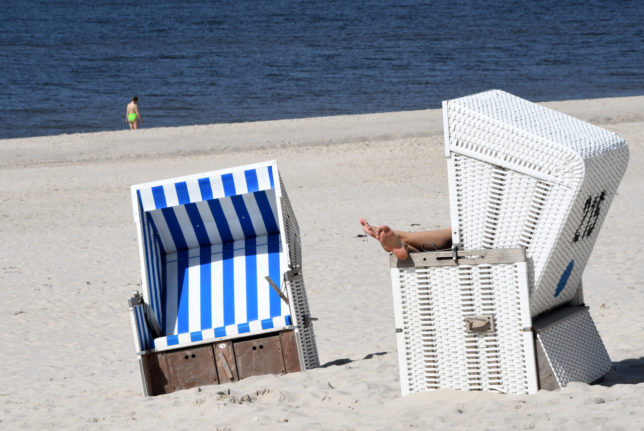
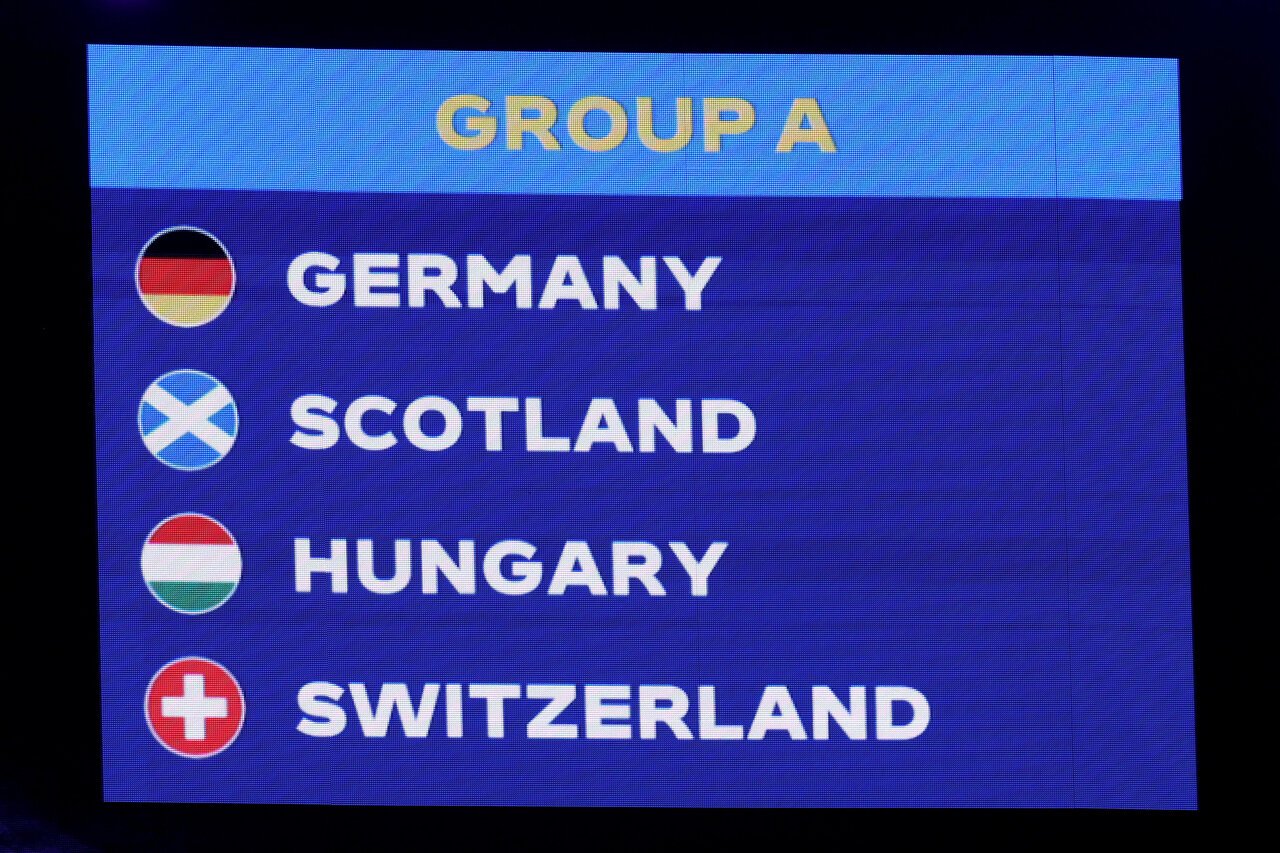
 Please whitelist us to continue reading.
Please whitelist us to continue reading.
Member comments